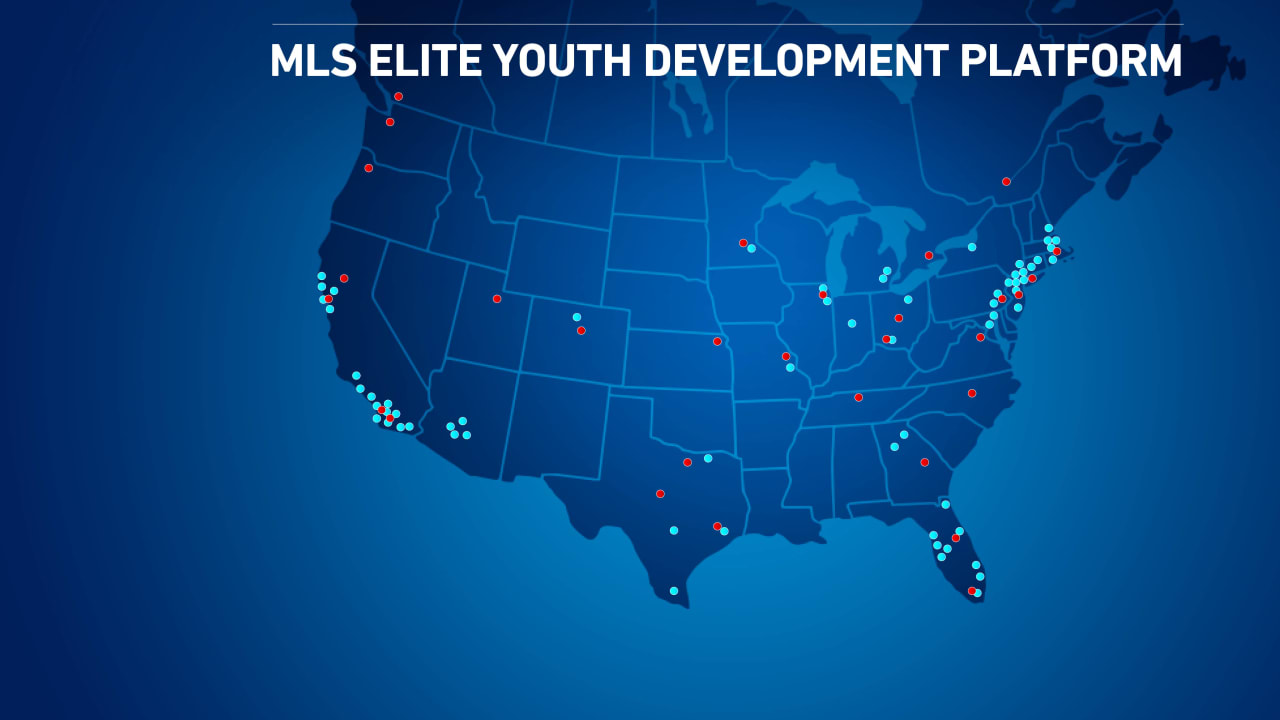Physical Address
304 North Cardinal St.
Dorchester Center, MA 02124
Physical Address
304 North Cardinal St.
Dorchester Center, MA 02124

MLS Youth Development has been a transformative force in American soccer, reshaping the future of the sport in the United States. With a focus on nurturing young talent, Major League Soccer has implemented several initiatives that are beginning to show incredible results both domestically and internationally. As the league evolves, MLS youth academies are not only providing a pathway to professional careers but are also contributing to the competitiveness of the U.S. men’s and women’s national teams.
Introduced in 2008, the Homegrown Player Rule has been a cornerstone of MLS Youth Development. This rule allows clubs to sign local players from their youth academies directly to the first team without exposing them to the MLS SuperDraft. The impact of this approach has been profound, enabling clubs to cultivate talent that is closely aligned with their playing philosophies. Learn more about the Homegrown Player Rule.
Several MLS clubs have successfully integrated homegrown players into their first teams, with talents like Tyler Adams (New York Red Bulls) and Alphonso Davies (Vancouver Whitecaps FC) finding success overseas. These players serve as inspirations for young athletes across the country, demonstrating that the MLS pathway can lead to global opportunities.
MLS Youth Development is strengthened by significant investments in state-of-the-art facilities and high-quality coaching. Clubs understand that providing young players with the best resources is key to nurturing their potential. Training complexes equipped with modern amenities and staffed by experienced coaches create an environment where young talents can thrive.
A distinctive aspect of MLS Youth Development is its emphasis on technical skills and understanding of tactics. Young players are taught to prioritize skill development and game intelligence, which are crucial as they transition to higher levels of competition. This focus ensures that players are not just physically prepared, but also mentally equipped to adapt to the dynamic nature of the game.
To enhance MLS Youth Development, several clubs have established partnerships with top international academies. These collaborations provide young players with exposure to different playing styles and training methods, broadening their understanding of the game. This international perspective is invaluable as MLS aims to produce well-rounded players capable of competing on the global stage.
MLS youth teams frequently participate in international tournaments, offering young players the experience of facing diverse competition. These tours not only test their abilities but also provide opportunities to showcase their talent on a larger platform. The exposure to international play conditions players to be adaptable and resilient.
The ripple effect of MLS Youth Development is evident in the national teams. As the quality of MLS-trained players improves, so does the performance of U.S. men’s and women’s national teams. The pool of young talent is deeper, and the tactical understanding of players has advanced significantly. MLS youth academies play a crucial role in preparing athletes for international competitions, contributing to the overall growth of soccer in the region.
Conclusion
MLS Youth Development is a remarkable success story, driving positive changes in American soccer. Through initiatives like the Homegrown Player Rule, investments in infrastructure, and international collaborations, MLS is building a sustainable pipeline of talent. As the league continues to grow, its impact on the global soccer landscape will only become more pronounced. For aspiring young players, the MLS pathway offers a promising future full of opportunities.